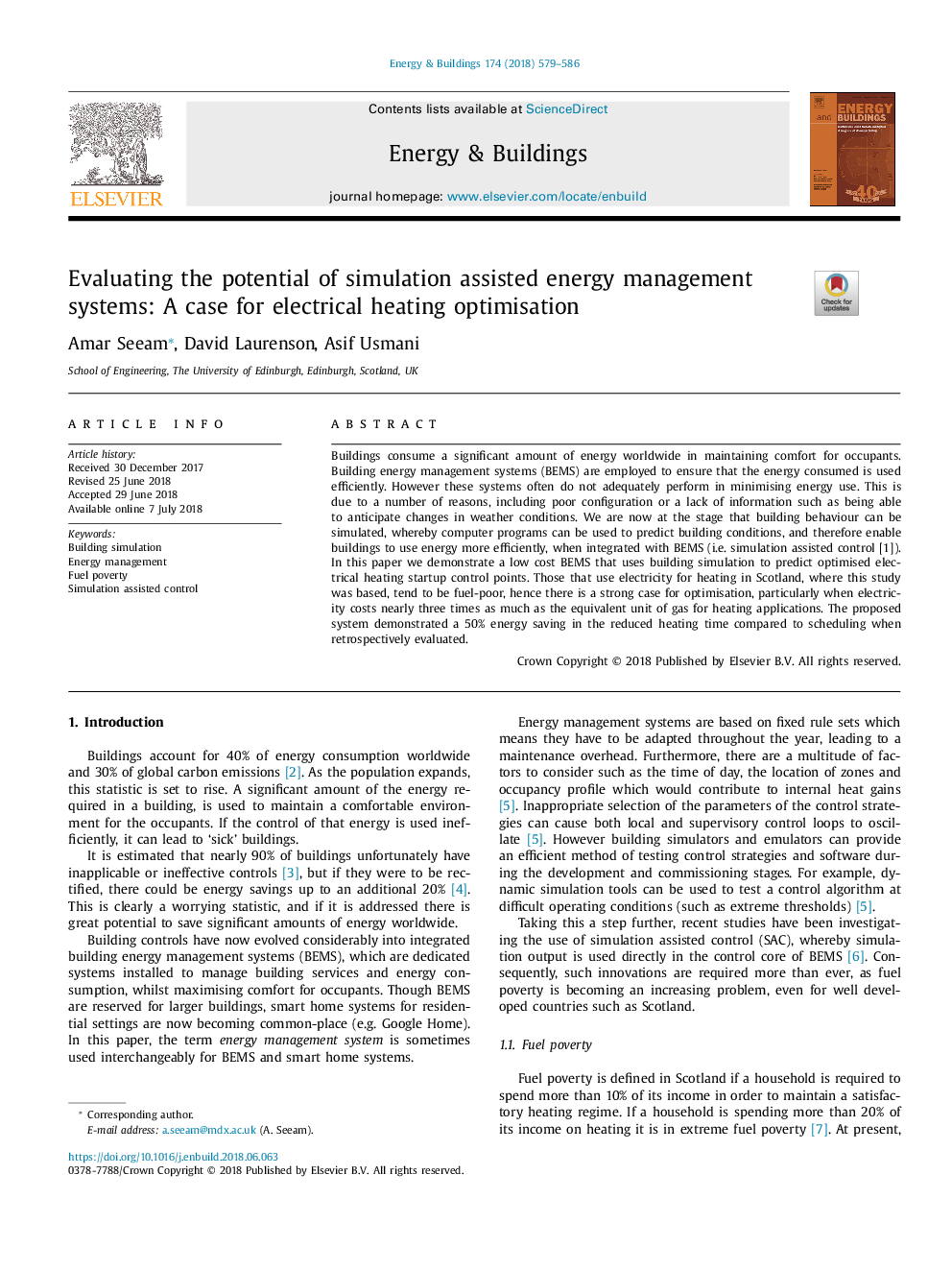| Article ID | Journal | Published Year | Pages | File Type |
|---|---|---|---|---|
| 6727571 | Energy and Buildings | 2018 | 8 Pages |
Abstract
Buildings consume a significant amount of energy worldwide in maintaining comfort for occupants. Building energy management systems (BEMS) are employed to ensure that the energy consumed is used efficiently. However these systems often do not adequately perform in minimising energy use. This is due to a number of reasons, including poor configuration or a lack of information such as being able to anticipate changes in weather conditions. We are now at the stage that building behaviour can be simulated, whereby computer programs can be used to predict building conditions, and therefore enable buildings to use energy more efficiently, when integrated with BEMS (i.e. simulation assisted control [1]). In this paper we demonstrate a low cost BEMS that uses building simulation to predict optimised electrical heating startup control points. Those that use electricity for heating in Scotland, where this study was based, tend to be fuel-poor, hence there is a strong case for optimisation, particularly when electricity costs nearly three times as much as the equivalent unit of gas for heating applications. The proposed system demonstrated a 50% energy saving in the reduced heating time compared to scheduling when retrospectively evaluated.
Related Topics
Physical Sciences and Engineering
Energy
Renewable Energy, Sustainability and the Environment
Authors
Amar Seeam, David Laurenson, Asif Usmani,
